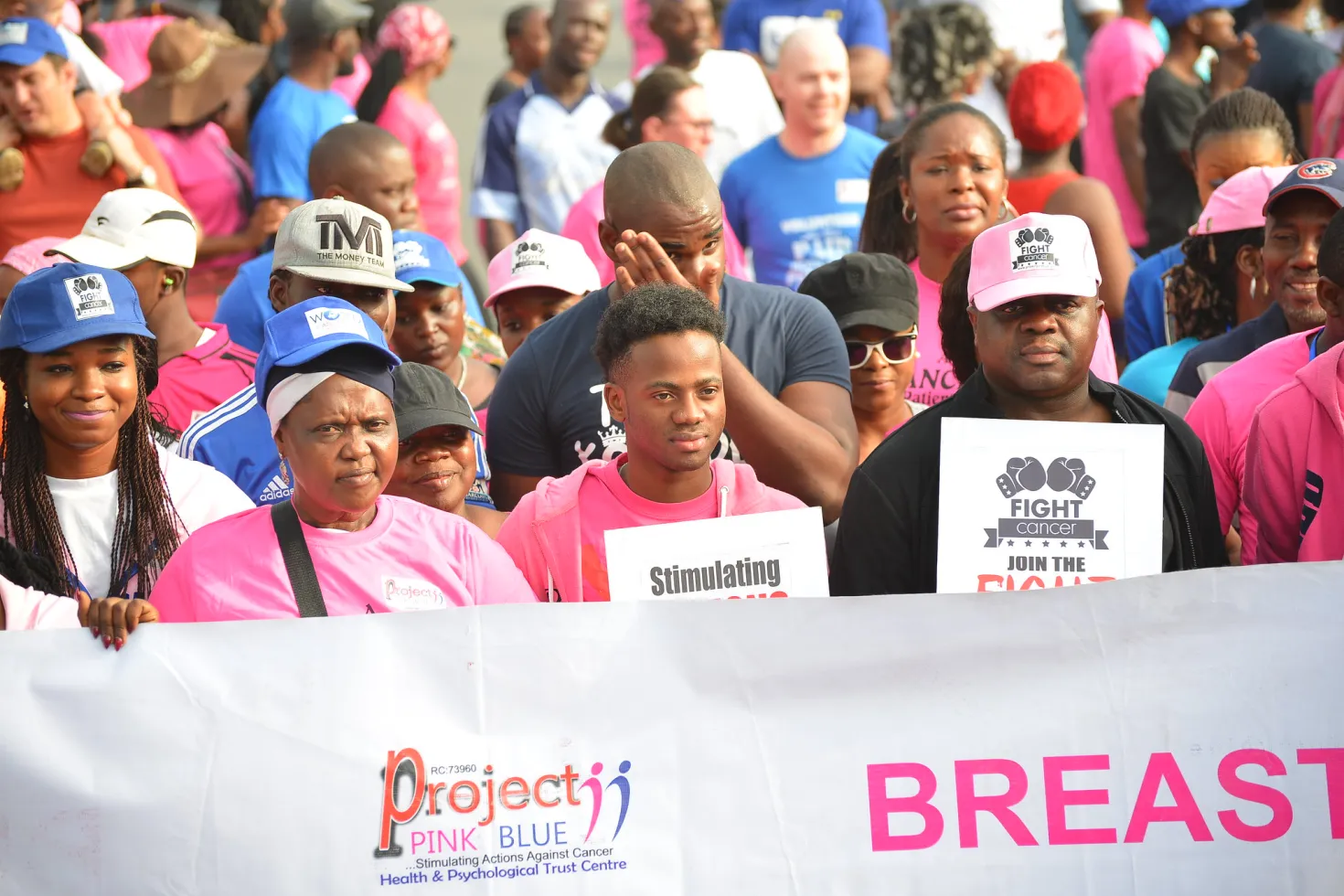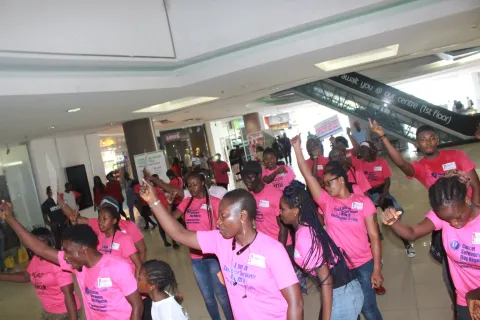Establishing navigation and palliative care services for metastatic breast cancer patients in Nigeria

Context

According to Project PINK BLUE – Health & Psychological Trust Centre, 70% of breast cancer patients are diagnosed at stage III or IV due to a lack of awareness of the disease, and a limited number of metastatic breast cancer (MBC) patients can subsequently access treatment and palliative care. The organisation has launched the “Breast Cancer Navigation and Palliative Programme” to train healthcare workers on patient navigation and palliative care for MBC patients.
Project PINK BLUE is an organisation which seeks to raise public awareness of cancer, and support people with cancer through patient navigation and provision of screening services. In addition, they advocate at the national level for improvements in cancer care, and fundraise to support cancer patients, research and training.
Project description

In 2015, Project PINK BLUE won a SPARC MBC Challenge grant to launch their “Breast Cancer Navigation and Palliative Programme” focusing on providing patient navigation to women living with MBC, and helping them to have access to timely palliative care.
This project had three objectives:
- To develop and create a patient navigation programme providing referral and linkages to eliminate barriers to access to care for MBC patients, through training, an online map of cancer facilities and a telephone hotline in Abuja
- To increase the quality of care of MBC patients, providing a cost-effective palliative care system, which is culturally relevant and socially acceptable
- To stimulate a national policy process for advanced breast cancer in Nigeria

Project PINK BLUE conducted many activities with these strategic objectives in mind. Nurses, healthcare workers, and breast cancer patients were trained in patient navigation and palliative care. A support group was formed called the “Abuja Breast Cancer Support Group”, with participants also engaged in public awareness-raising activities, for example, a flash mob. Importantly, they also engaged local policymakers to advocate that MBC patients be acknowledged in Nigeria’s cancer care bills.
Impact
The public launch of the “Breast Cancer Navigation and Palliative Programme” was featured on national and international media platforms, including television, radio and newspapers. According to Project PINK BLUE, the awareness on this programme reached 2’625 people and elicited 10’000 views on various social media platforms.
Through the “Breast Cancer Navigation and Palliative Programme” Nigeria’s first patient navigation programme was rolled out. 138 health workers and social workers were trained across the six area councils of Abuja. 44 of them were trained with the help of the Sarah Canon Research Institute in Dallas, Texas, which organised a five day training for navigators from the National Hospital Abuja, as well as from Enugu and Kebbi who were also working on establishing navigation programmes in their respective states. The SPARC grantee organisation in Enugu state also participated to this training, informing their project and ongoing work. Training was also provided through a Project ECHO palliative care course.
The programme also identified and connected 116 breast health facilities (diagnostic centres and hospitals) through a web-based navigation map application to help patients identify treatment centres. In addition to the mapped health facilities in Abuja, many other resources and services were created for patients. An Abuja Breast Cancer Support Group was established, in which 26 breast cancer patients have participated. A toll-free cancer telephone centre (08000CANCER) was also created, which has so far helped to navigate over 3’000 people through diagnosis and care since 2015. Project PINK BLUE produced a patient navigation book for healthcare workers, a patient journey handbook, brochures, a code of ethics, videos, and tracking tools. Through their partnership with Susan G. Komen, breast self-examination materials from English into Hausa, Igbo, Yoruba and Pidgin English.
Finally, through the SPARC grant, Project PINK BLUE engaged key political stakeholders, including planning meetings with the Federal Ministry of Health resulting in the National Assembly passage of the bill to establish Nigeria’s National Institute on Cancer Research and Treatment in 2017.
Currently, the patient navigation programme continues to run at the National Hospital Abuja, and across the six area councils of Abuja, with a toll-free telephone centre situated at the Project PINK BLUE office.
More
- Organisation’s website: Project PINK BLUE
- Project PINK BLUE Breast Cancer Navigation and Palliative Programme : Webpage on BCNPP
- Report on the BCNPP Programme: Breast Cancer Navigation & Palliative Programme 2015-2017 PDF
Resources on breast cancer
- Interactive map of cancer facilities: Cancer control navigation map
- Breast self-awareness materials : Breast Cancer Materials
- Manual: Advanced Breast Cancer Handbook PDF
Videos
- Patient Navigation Training: Patient Navigation Training:
- Advocacy to rural communities: advocacy in rural communities
- Launching of our cancer telephone centre: launching of our cancer telephone centre
Articles
- Nigeria’s Senate Passes the bill to establish National Institute for Cancer Research and Treatment
- President Muhammadu Buhari signs the bill to establish National Institute for Cancer Research and Treatment
- Nigeria healthcare system unhealthy for cancer management
- UICC interview article: Meet with Runcie C.W. Chidebe, SPARC project leader and executive director of Project PINK BLUE
(Information from the project description and context is compiled from the SPARC reports)
Last update
Wednesday 15 March 2023